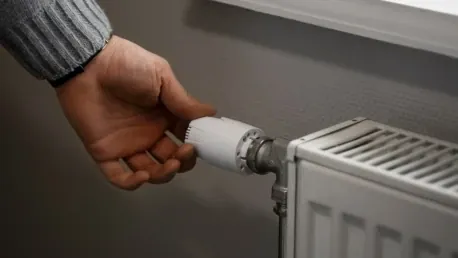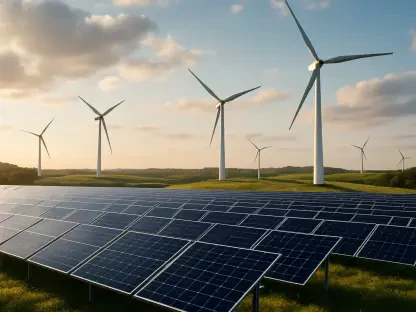In 2025, homeowners and property managers face a unique opportunity to upgrade their heating systems while capitalizing on various tax incentives aimed at promoting energy efficiency and reducing environmental impact. By understanding the available options and their specific requirements, individuals can make informed decisions and maximize their tax benefits. With the increasing emphasis on sustainability, the Italian government has introduced several incentives, including the Renovation Bonus, Ecobonus, Superbonus, and Thermal Account 2.0, to support the transition to more energy-efficient heating systems. These incentives are expected to play a pivotal role in encouraging the adoption of greener heating technologies, thus helping to mitigate the adverse effects of climate change.
The introduction of these incentives demonstrates the government’s commitment to promoting energy efficiency and reducing fossil fuel dependency. By offering significant tax benefits, the goal is to make it financially viable for property owners to invest in modern, eco-friendly heating systems. This initiative not only benefits the environment but also helps homeowners reduce their energy bills and increase the overall value of their properties. The incentives are specifically designed to encourage the replacement of old, inefficient boilers with high-efficiency models that utilize renewable energy sources. Understanding the eligibility criteria and the scope of these incentives is crucial for property owners looking to take advantage of these opportunities to enhance their heating systems.
Understanding the Renovation Bonus
The Renovation Bonus in 2025 offers a substantial 50% deduction on expenses incurred for purchasing and installing high-efficiency boilers, providing significant financial relief for those investing in energy-efficient upgrades. Capped at 96,000 euros per real estate unit, this bonus is spread over ten annual installments, ensuring that the financial benefits are accessible over a prolonged period. This incentive stands out because it does not require applicants to reside in Italy, making it a viable option for a broader range of property owners, including those living abroad but owning property in Italy.
Eligible interventions under the Renovation Bonus include replacing condensing boilers of energy class A that are used for heating or domestic hot water production. The primary condition for availing of this incentive is that the intervention must lead to an improvement in the energy efficiency of the property. This makes the Renovation Bonus an attractive option for individuals, condominiums, property owners, tenants, or borrowers who are responsible for the expenses related to these upgrades. The focus on energy efficiency not only helps reduce heating costs but also contributes to a more sustainable living environment by lowering the carbon footprint of residential heating systems.
Exploring the Thermal Account 2.0
The Thermal Account 2.0 provides an enticing alternative to traditional tax bonuses by offering non-repayable contributions for low environmental impact heating systems. In 2025, this account can cover up to 65% of the incurred expenses, depending on the type of intervention and technology installed. For example, it offers up to 40% for high-efficiency condensing boilers and up to 65% for hybrid installations, biomass systems, and heat pumps. This makes the Thermal Account 2.0 a versatile option for those looking to invest in a variety of sustainable heating technologies.
Qualified interventions under the Thermal Account 2.0 include replacing existing air conditioning systems with biomass generators or heat pumps, installing solar thermal collectors for hot water production, and adapting heat distribution and regulation systems. The incentive process is simplified for devices listed in the Energy Services Manager (GSE) catalog, making it easier for applicants to access the benefits. The Thermal Account 2.0 provides a direct cash refund, either in a single installment for expenses up to 5,000 euros or in multiple installments for larger amounts, ensuring flexibility in how the financial aid is received. This incentive is accessible to private individuals, businesses, and public administrations, offering a broad appeal for various stakeholders aiming to reduce their environmental impact through upgraded heating systems.
Leveraging the Ecobonus
The Ecobonus in 2025 provides a 50% tax deduction for replacing old boilers with high-efficiency models, making it a substantial incentive for those looking to upgrade their heating systems. Divided over ten annual installments, this deduction requires the interventions to be performed on existing property units, ensuring that the benefits are accessible to property owners with established heating systems. Eligible boilers under the Ecobonus include hybrid systems that combine heat pumps with class A or higher condensing boilers, biomass boilers with advanced thermoregulation systems, and high-performance condensing hot air generators.
The scope of the Ecobonus extends to cover expenses related to the purchase and installation of these high-efficiency boilers. This includes work on distribution networks and associated regulation and control devices, as well as professional fees for energy certification and necessary building modifications. This comprehensive approach ensures that all aspects of upgrading to a more energy-efficient heating system are financially supported, making the Ecobonus a highly attractive option for property owners. By leveraging this incentive, homeowners can significantly reduce their upfront costs while contributing to a more sustainable environment.
Taking Advantage of the Superbonus
The Superbonus remains one of the most beneficial incentives in 2025, offering up to a 70% deduction in 2024, which will reduce to 65% in 2025 for interventions tied to major energy-efficiency upgrades. This includes critical actions such as thermal insulation or comprehensive building redevelopment. Specifically targeting hybrid boilers, the Superbonus supports systems that integrate heat pumps with class A or higher condensing boilers and operate on centralized systems for optimized joint operation. This makes it an excellent option for those aiming to make significant energy efficiency improvements to their properties.
To qualify for the Superbonus, interventions must start by October 15, 2024, and must focus on common parts of condominiums or multifamily buildings. This includes properties owned by ONLUS, APS, or voluntary associations. In line with European energy transition directives, fossil-fuel-only boilers are excluded from this incentive, promoting the use of hybrid systems and other high-efficiency alternatives. By aligning with these directives, the Superbonus not only helps property owners achieve substantial energy savings but also supports broader environmental goals. Taking advantage of this incentive can lead to significant financial benefits while ensuring compliance with evolving energy efficiency standards.
Navigating the Green Homes Directive
By 2025, homeowners and property managers have a unique chance to upgrade their heating systems and take advantage of various tax incentives designed to promote energy efficiency and lessen environmental impact. Knowing the available options and their requirements allows individuals to make informed decisions and maximize their tax benefits. With a growing focus on sustainability, the Italian government has launched several incentives—such as the Renovation Bonus, Ecobonus, Superbonus, and Thermal Account 2.0—to support the shift to more energy-efficient heating systems. These incentives aim to foster the adoption of greener technologies, thereby helping to combat climate change.
These incentives underscore the government’s dedication to advancing energy efficiency and curbing fossil fuel reliance. By offering substantial tax benefits, the initiative makes it financially feasible for property owners to invest in modern, eco-friendly heating systems. This effort not only benefits the environment but also helps homeowners lower their energy bills and increase their property values. The incentives are targeted at encouraging the replacement of outdated, inefficient boilers with high-efficiency models using renewable energy sources. Understanding the eligibility criteria and scope of these incentives is essential for those looking to improve their heating systems.









